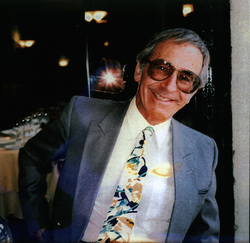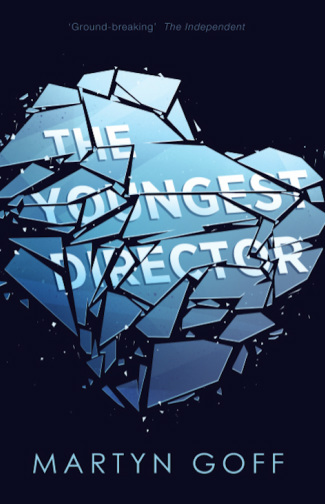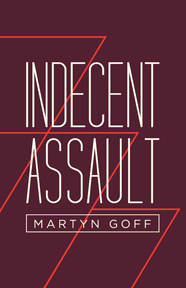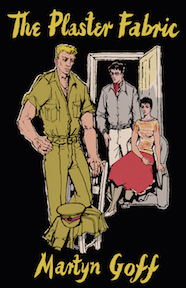|
BOOK DETAILS
Trade paper ISBN-13: 978-1939140418 List Price: $17.99 U.S. Pages: 218 Published: 2013 |
The Youngest Director (1961)
Martyn Goff With a new introduction by Martin Dines Book Description
At 32, Leonard Bissel seems to have everything going for him: newly appointed as the youngest director of a major London corporation, he has a posh house in Chelsea, a new black MG, and a promising new relationship. There’s just one problem: Leonard’s boss and his family expect him to marry, but Leonard is secretly gay and wants nothing more than to settle down in a stable relationship with his partner, John. As Leonard’s employer and his parents increase the pressure on him to marry, he will be faced with an impossible decision: is he willing to give up his job, his family, his home, and everything he’s worked for in order to remain true to his own identity and the person he loves? Published in 1961, when homosexuality was still illegal in England, Martyn Goff’s The Youngest Director is a landmark of British gay fiction. A gripping story exposing the injustice and prejudice faced by gay men in the mid-20th century, Goff’s novel remains highly topical today as gay rights and the struggle for marriage equality continue to dominate the headlines. This edition, the first in 30 years, includes a new introduction by Martin Dines and an afterword by the author. |
ALSO AVAILABLE THROUGH ONLINE RETAILERS
MORE TITLES BY THIS AUTHOR
AUTHOR BIOGRAPHY

Martyn Goff was born in 1923, the son of a Russian fur dealer who had emigrated to London and established himself with great success. As a youth, Goff read prodigiously, and at 19 he was offered a place at Oxford to read English, but he joined the RAF and served in the Second World War instead. After the war, at age 22, Goff decided to become a bookseller: in 1946, he opened his first shop and before long opened others.
Goff published his first novel, The Plaster Fabric, in 1957, at a time when homosexuality was still illegal in Britain and authors who wrote openly about it could find themselves prosecuted. However, the book earned a rave review from the popular poet and critic John Betjeman, and, as Goff has said, ‘After that, the authorities could hardly condemn it.’ He went on to publish several other novels; three of these--The Youngest Director (1961), Indecent Assault (1967) and Tar and Cement (1988)—dealt with gay themes. He has also published a number of non-fiction works, including books on collecting vinyl records.
Goff is credited by many as one of the most significant figures in modern British fiction for his involvement with the Booker Prize, which he helped to create and oversaw for its first 36 years. Little noticed and even jeered at in its early years, the Booker under Goff’s chairmanship grew into one of the world’s major literary awards, attracting an annual media frenzy and guaranteeing huge sales for winners and shortlisted novels. As Goff approached retirement in 2002, John Sutherland wrote in The Guardian: ‘The current health of English fiction can be explained in two words: Martyn Goff.’
Martyn Goff lived in London with his partner, Rubio Tapani Lindroos; the two met in the late 1960s after the latter, then a student, wrote a fan letter to the author after reading The Youngest Director. He died in 2015.
Goff published his first novel, The Plaster Fabric, in 1957, at a time when homosexuality was still illegal in Britain and authors who wrote openly about it could find themselves prosecuted. However, the book earned a rave review from the popular poet and critic John Betjeman, and, as Goff has said, ‘After that, the authorities could hardly condemn it.’ He went on to publish several other novels; three of these--The Youngest Director (1961), Indecent Assault (1967) and Tar and Cement (1988)—dealt with gay themes. He has also published a number of non-fiction works, including books on collecting vinyl records.
Goff is credited by many as one of the most significant figures in modern British fiction for his involvement with the Booker Prize, which he helped to create and oversaw for its first 36 years. Little noticed and even jeered at in its early years, the Booker under Goff’s chairmanship grew into one of the world’s major literary awards, attracting an annual media frenzy and guaranteeing huge sales for winners and shortlisted novels. As Goff approached retirement in 2002, John Sutherland wrote in The Guardian: ‘The current health of English fiction can be explained in two words: Martyn Goff.’
Martyn Goff lived in London with his partner, Rubio Tapani Lindroos; the two met in the late 1960s after the latter, then a student, wrote a fan letter to the author after reading The Youngest Director. He died in 2015.



